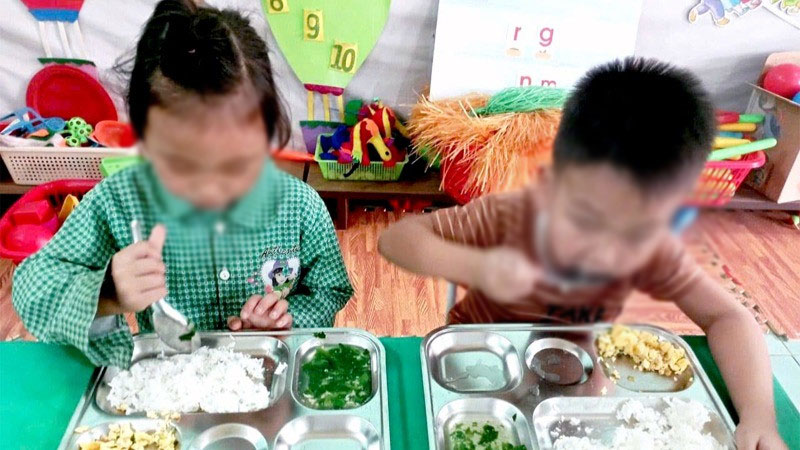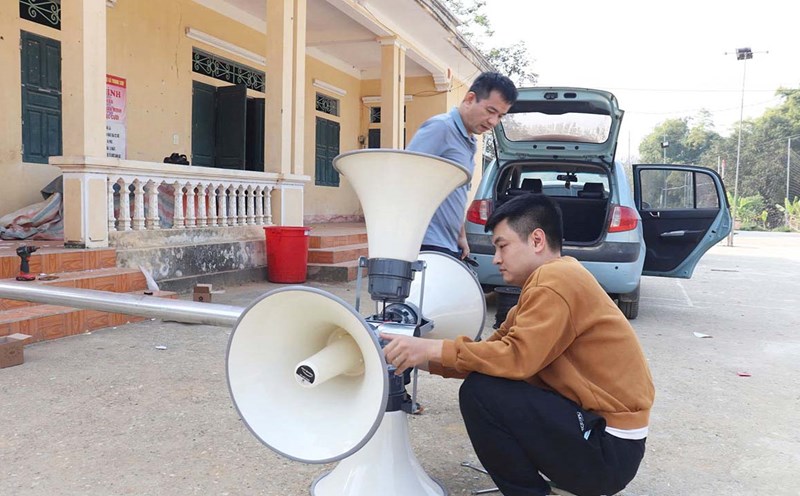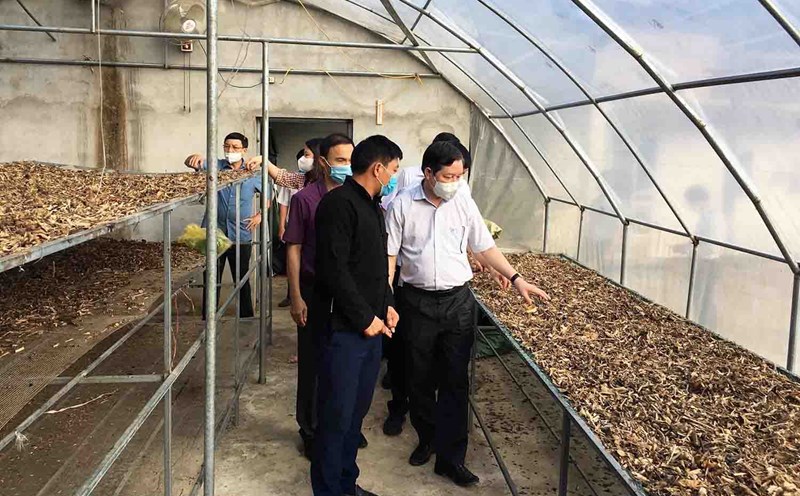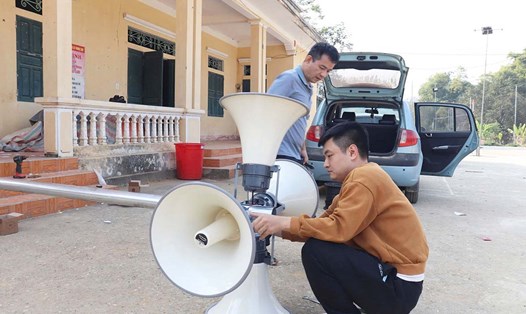According to statistics, Tuyen Quang province currently has more than 87% of the population as ethnic minorities, living mainly in mountainous areas, isolated terrain, and difficult access to health care and health care.
Therefore, the locality is very interested in health care and improving special nutrition for children of poor households, near-poor households, and newly escaped poverty households. Thanks to that, the lives of poor households are increasingly stable, people are assured of economic development and sustainable poverty reduction.
In Hoang Su Phi commune, after merging administrative boundaries, this locality has more than 18,000 people, a large area with rugged hills and mountains. Previously, the system of schools and health stations with synchronous investment has helped to facilitate people's health care.
Ms. Ban Thi Le (Hoang Su Phi commune) said that her family is poor and has limited knowledge, so her sick child used to be treated by herself, and there were bells and pipes that could not be healed.
"In recent years, the government has promoted and mobilized periodic medical examinations and nutrition so that the children are now healthy. I am also assured of doing business and trying to escape poverty," Ms. Le shared.
Currently, in Hoang Su Phi, the vaccine coverage rate has reached 100%, 193199 villages have active village healthcare, the fully vaccination rate has reached 94% of the assigned target. In particular, the rate of children under 5 years old with undernourishment and undernourishment in honking in 2024 will decrease to 26.72%, mainly children of ethnic minorities, poor households, near-poor households, and households that have just escaped poverty.

Meanwhile, in Lam Binh, one of the particularly disadvantaged highland communes with a high rate of poor households in Tuyen Quang province. Nutritional health care for children of poor households has achieved many positive results.
From many programs and state support resources, children going to school have been supported with cooking rice at school, parents do not need to bring rice to school for their children as before. Thanks to that, the quality of nutrition is improved, children can study with peace of mind, and parents can work with peace of mind.
Teacher Ban Thi Doan, Khuoi Trang school (Lam Binh commune) said that currently, the lunch menu for children has been changed continuously and diversely, with dishes such as fried eggs, minced meat, Malabar spinach soup... changing by day, by week.
"Most of my children and grandchildren are from poor households and ethnic minorities. Ensuring nutritious meals at school has helped improve the health and physical condition of the children. The children's parents also have time to develop their economy and rise up", said Ms. Ban Thi Doan.
Tuyen Quang province currently has nearly 500,000 children under 16 years old, of which, children from poor and near-poor households are about 100,000 children. Caring for, improving nutrition, and improving the physical condition of children of poor households are identified as contributing significantly to sustainable poverty reduction.
In the past 5 years, the vaccination coverage rate has been expanded in 100 communes and wards, all communes have effective village nurses. Deploying 53 models of "Nurturing 1,000 days of the first life" to prevent and combat malnutrition for mothers and children helps reduce the rate of malnourished children under 5 years old to 16.2% in 2024.
Implementing the National Target Program for Sustainable Poverty Reduction, Tuyen Quang province has devoted many resources to supporting and directly combating malnutrition and micronutrient deficiencies for mothers and children under 5 years old from poor and poor households and people living in poor communes.
At the same time, strengthen activities to improve the quality of school meals and education on nutritional care, prevent micronutrient deficiencies, protect and provide nutritional care for school children.











